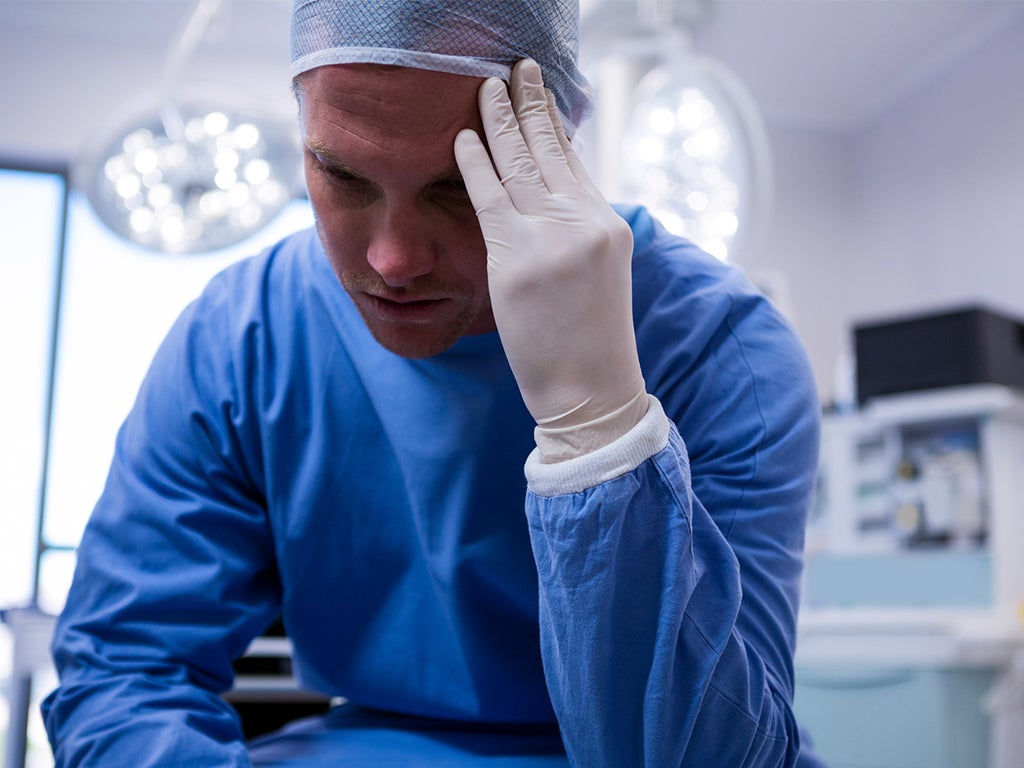Speaking up about doctors’ mental health: Prof Steve Robson shares his experience
Monday, 23 May 2022

Your early years in medical training can take their toll on your physical and mental health. But keeping your feelings to yourself only adds more stress. Ahead of this year’s CrazySocks4Docs Day, we spoke with Prof Steve Robson, who tells his story to help doctors realise it’s important to ask for help when you need it.
When obstetrician and gynaecologist, Prof Steve Robson, was at his lowest point during his medical training in the late Eighties, he could not have foreseen he would become President of the Royal Australian and New Zealand College of Obstetricians and Gynaecologists (RANZCOG) some 30 years later.
Were it not for the intervention of some of his colleagues at the time, he may not have.
“There’s no secret that working in a complex environment like training to be a specialist obstetrician and gynaecologist, training in any medical area … these things are stressful. Because you’re not only doing your work, you’re trying to acquire new skills, sit exams, pass assessments. And many people are reluctant to show what they would perceive as weakness or not coping,” Prof Robson observes.
“I would have been mortified if my colleagues knew how I was feeling or what was going through my mind. But it would have been really important to have that discussion at the time and I’m incredibly lucky that I’m even here at all. It was perhaps random chance, perhaps a deliberate act by my colleagues. I think that’s what brought it home for me – that it’s important we look out for our colleagues, and ourselves; try to recognise how we’re feeling and not be embarrassed or ashamed, or not seek help or speak to somebody about things.”
During his internship, Prof Robson had lost a patient, a devastating experience on top of his training stresses. “Clearly, I had a sense I was incompetent and let somebody down and they’d lost their [life],” he reflects, with emotion.
Forgotten feelings resurface
In 2018, those feelings came back when, as outgoing RANZCOG President, he gave a talk at the College’s annual scientific meeting on the lessons he’d learned during his term, in particular about pelvic mesh implants, and the associated class action that year.
“I’d found the entire mesh experience extremely stressful. And when I gave the talk, I found myself feeling the sort of feelings I hadn't felt for 30 years. I’d never talked to anybody. I had really tried to forget a lot of this. But here I am 30 years later, I’m the President of the College, I’ve got a PhD, there’s not a lot more to achieve career-wise, yet I’m still feeling like I’m locked in … How can I deal with this?”
Prof Robson confided in a colleague, who suggested he wrote about his experience. Around the same time, he was unexpectedly introduced to Crazysocks4Docs founder, cardiologist Dr Geoff Toogood. The meeting further inspired him to tell his story, to make something positive about his experience and help others.
In October 2018, Prof Robson’s article was published in MJA Insight. He’d hoped it might start a discussion among emerging medical trainees across all disciplines, helping them feel less alone or ashamed to open up about their mental health struggles. The article had a wider impact than Prof Robson anticipated, and prompted a heartfelt public response from one of the trainee colleagues who had intervened when he needed help most.
“I didn’t realise the reaction that article would provoke. I think [it’s] because it resonated with so many people. I’ve had people from all walks of life … the legal profession … [to] not professions at all, have come up to me and said: ‘I read that and it felt meaningful to me’,” he says. “The sole purpose, I think, was to open that discussion and send a signal to people that it is OK to talk about this and do not keep these sorts of feelings to yourself. In fact, if I hadn’t been interrupted [by colleagues], I would have killed myself.”
CrazySocks4Docs puts doctors’ mental health – and odd socks – in the spotlight
In the same way that ‘chance’ meeting with Dr Geoff Toogood inspired Prof Robson to share his story and help others, Crazysocks4Docs Day aims to draw attention to the mental health struggles faced by doctors and health professionals, to break down any stigma and get people talking.
The movement was founded in 2017 by Dr Toogood, whose own experience of depression, anxiety and mental health stigma at work motivated him to bring the issue out into the open.
This year, Crazysocks4Docs Day is on Friday 3 June, when doctors and health professionals are encouraged to wear their craziest socks to work and post photos of them on social media, with the hashtag #crazysocks4docs.
Prof Robson’s experience proves that while you will have tough times in your medical training, your career and personal life, it’s important to step back to gain perspective, talk about your feelings and seek the support you need.
“No matter how bleak it seems at the time, it is possible to go on and recover and have a good career that helps people,” he says.
Watch Prof Steve Robson tell his story in full here.
If this story has raised issues for you, or for more health and wellbeing advice, visit Avant - Key support services.
More ways we can help you



